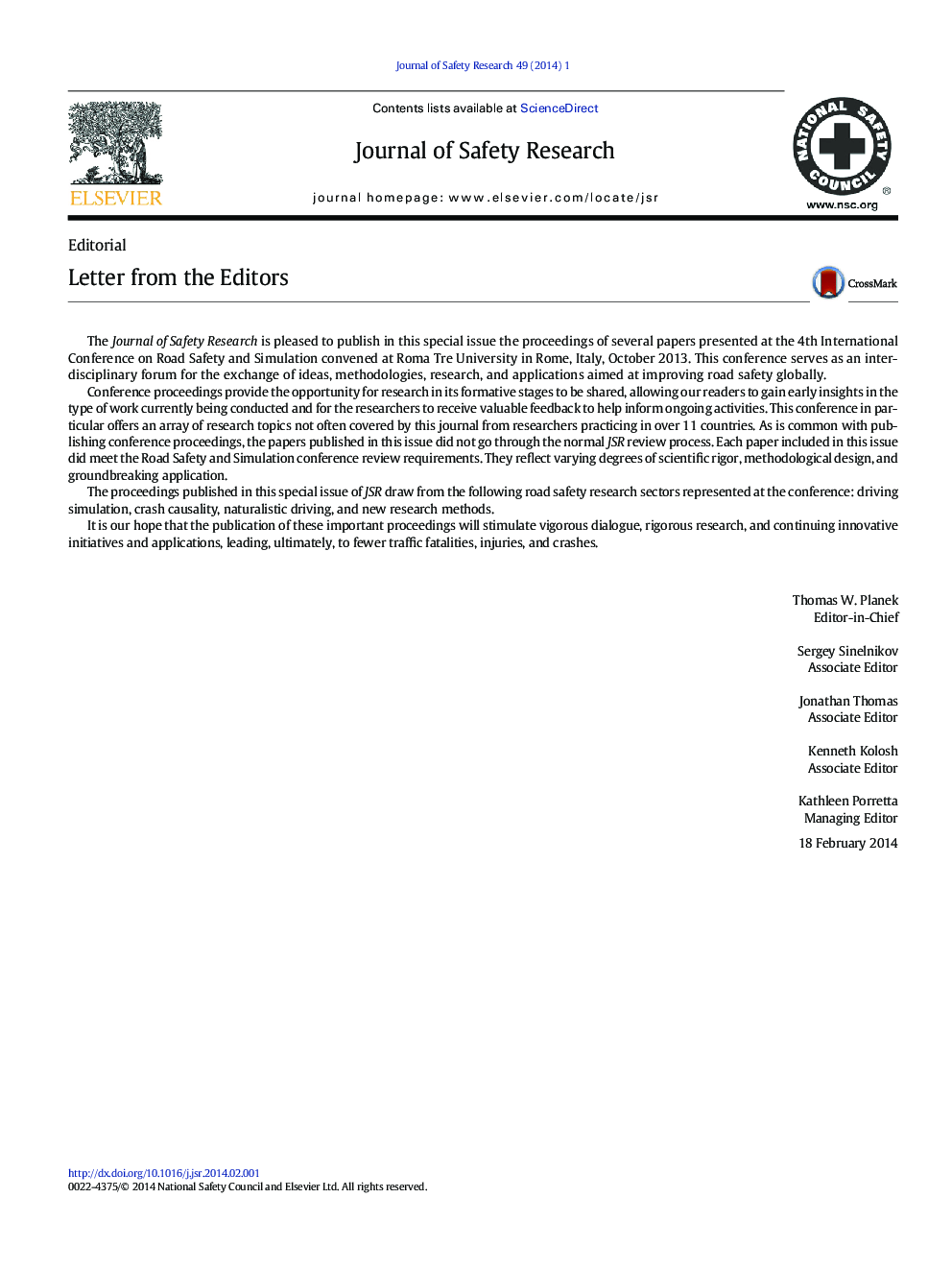| Article ID | Journal | Published Year | Pages | File Type |
|---|---|---|---|---|
| 587412 | Journal of Safety Research | 2014 | 11 Pages |
IntroductionThe public health costs associated with alcohol-related traffic accidents have prompted considerable research aimed at identifying characteristics of individuals who drive under the influence (DUI) in order to improve treatment and prevention strategies. Survey studies consistently show that DUI offenders self-report higher levels of impulsivity compared to their nonoffending counterparts. However, little is known about how individuals with a DUI history respond under alcohol. Inhibitory control is a behavioral component of impulsivity thought to underlie risky drinking and driving behaviors.MethodThe present study examined the degree to which DUI drivers display deficits of inhibitory control in response to alcohol and the degree to which alcohol impaired their simulated driving performance. It was hypothesized that DUI offenders would display an increased sensitivity to the acute impairing effects of alcohol on simulated driving performance. Young adult drivers with a history of DUI and a demographically-comparable group of drivers with no history of DUI (controls) were tested following a 0.65 g/kg dose of alcohol and a placebo. Inhibitory control was measured by using a cued go/no-go task. Drivers then completed a driving simulation task that yielded multiple indicators of driving performance, such as within-lane deviation, steering rate, centerline crossings and road edge excursions, and drive speed.ResultsResults showed that although DUI offenders self-reported greater levels of impulsivity than did controls, no group differences were observed in the degree to which alcohol impaired inhibitory control and driving performance. The findings point to the need to identify other aspects of behavioral dysfunction underlying the self-reported impulsivity among DUI offenders, and to better understand the specific driving situations that might pose greater risk to DUI offenders.Practical applicationsThe systematic study of candidate cognitive deficits in DUI offenders will provide important information on their role in risky driving behavior and decisions to drink and drive. Such information is critical for guiding new interventions for DUI offenders that will move treatment beyond general addiction counseling.
